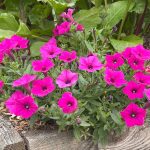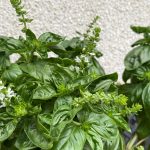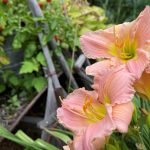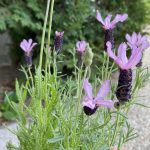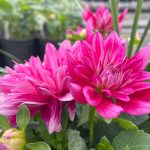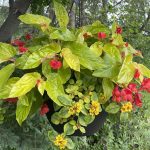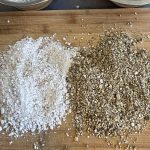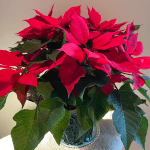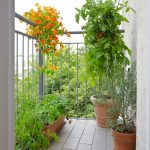Have you ever wondered why professional planters and hanging baskets always seem to be thriving, even if they’re not being watered and cared for daily like yours? That would be the power and benefits of mulch in planters and hanging baskets. If you’re wondering how to keep your planters healthy with less maintenance needs, read on to learn about how to use mulch in planters and hanging baskets.
Why Your Garden Loves Mulch

I’d like to tell you a little story about a conversation I had with a good friend, one rather unfamiliar with gardening, about mulch.
As he popped by to pick up his son from my home, he walked with me through my yard and perennial garden complete with many planted containers.
And at one point, exclaimed, “Oh, this garden must be SO MUCH WORK! You must be weeding all day long everyday.”
After a short pause, I said, “Actually, it’s really not. Let me tell you about this magical garden thing called mulch.”
Mulch is a protective layer of covering material spread on the soil surface and around the bases of plants.
If you walk through a forest and look at the forest floor, you will see that mulch is a part of nature’s design.
Mulch is beneficial for flower and vegetable gardens, and raised bed gardens.
This blog will highlight the benefits of mulch for planters and hanging baskets and talk about what mulch is best for them.

Want the inside scoop on more gardening tips? Get early access to all my blogs and exclusive content by signing up for my newsletter!
The Benefits of Mulch for Planters and Hanging Baskets

Interestingly, the advantages of mulch extend beyond conventional in-ground plantings and raised beds, I add a layer to my pots and hanging baskets, too.
Planters and hanging baskets don’t require the thick layer that gardens profit from, just a 5-7.5 cm (1-1.5″) layer in a container will reap the benefits.
Here are the advantages mulch bring to planted containers:
Mulch Controls Weed Growth in Planters
A mulch layer that covers the soil blocks light and reduces the capability of weeds to photosynthesize and grow.
If weeds do grow, they will be weak and leggy, and simple to remove.
Mulch Moderates Soil Temperatures in Planted Containers
Mulch reduces the soil temperatures of containers as it blocks sunlight beating on bare soil.
Cooler temperatures help to reduce plant stress.
Mulch Helps to Reduce Planter & Hanging Basket Water Demand
A thin layer of mulch in planters cuts down water evaporation from the soil which helps to maintain moisture levels, resulting in decreased plant stress.
You will notice a reduction in the water demands of your planters and hanging baskets.
Mulch Reduces Soil Erosion in Planters
Mulch softens the impact and redirects water flow to prevent divots or soil indentation and erosion in planters.
Mulch Improves Container Esthetics
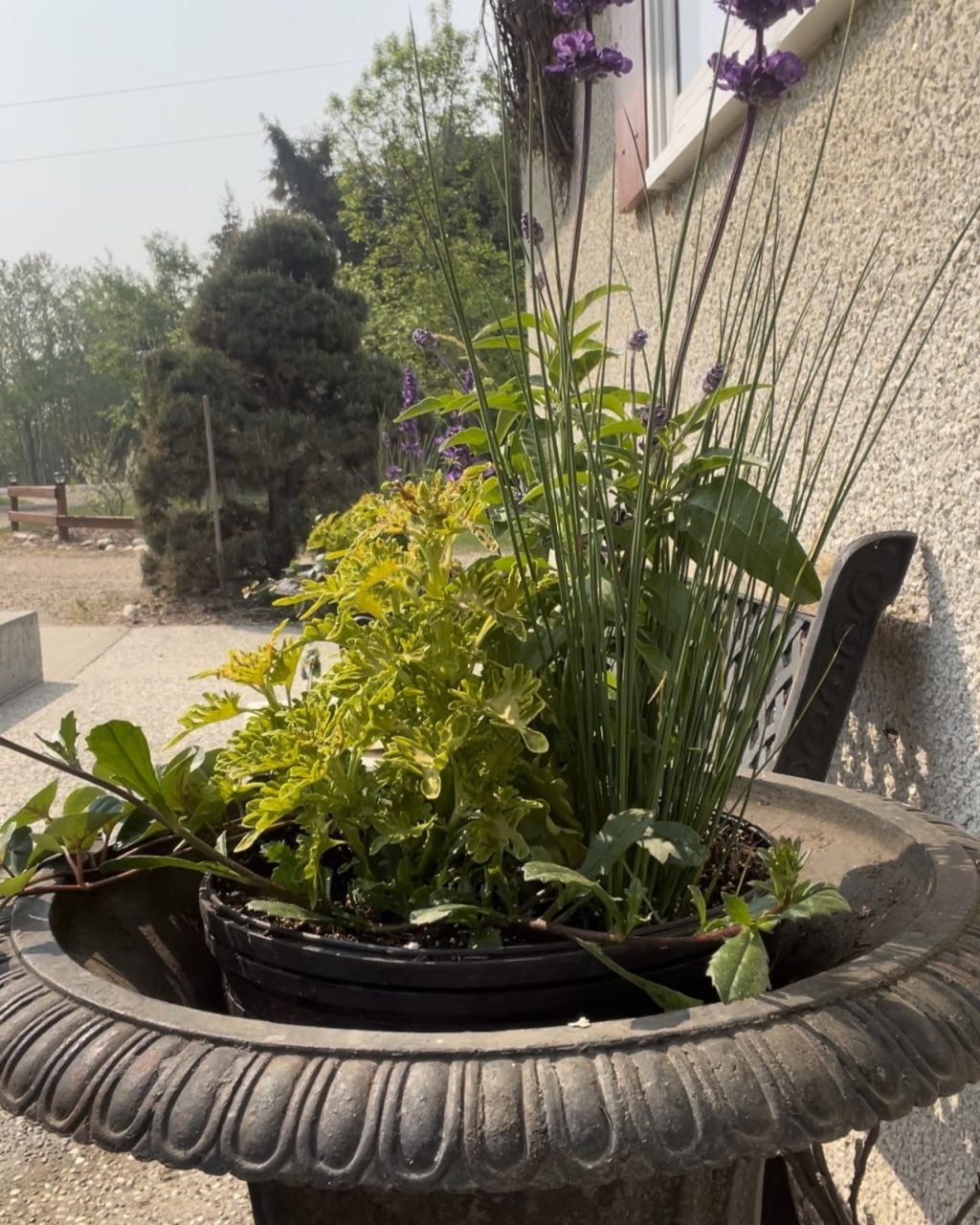
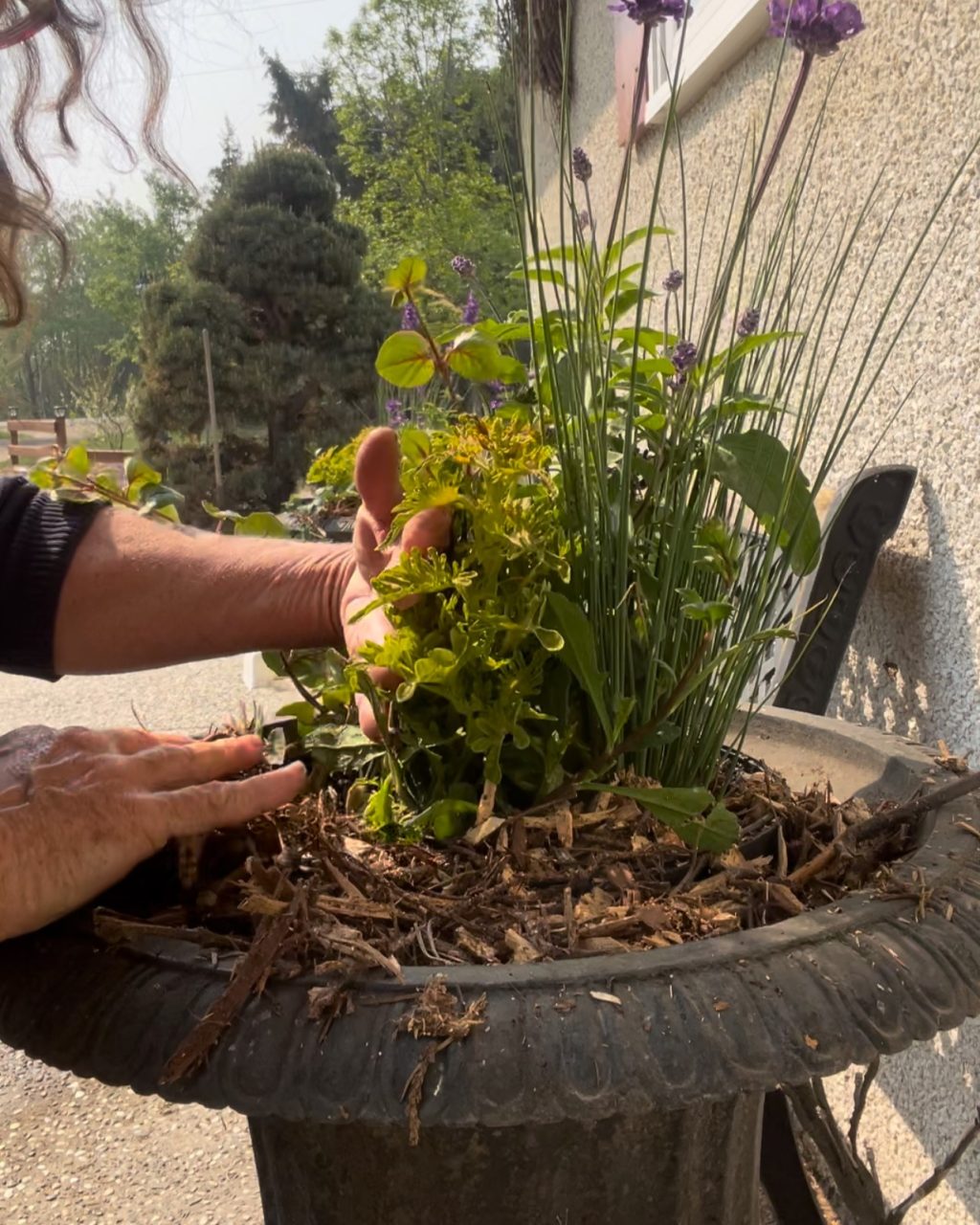
Additionally, mulch can help conceal unsightly pairings between pot liners and large planters by smoothing out the gap separation.
Mulch Reduces Workload
And overall, mulch cuts down demand on your time. All these small advantages melding together makes gardening simpler, and with a garden full of flowers and vegetables, every bit helps.
Which Mulch is Best?
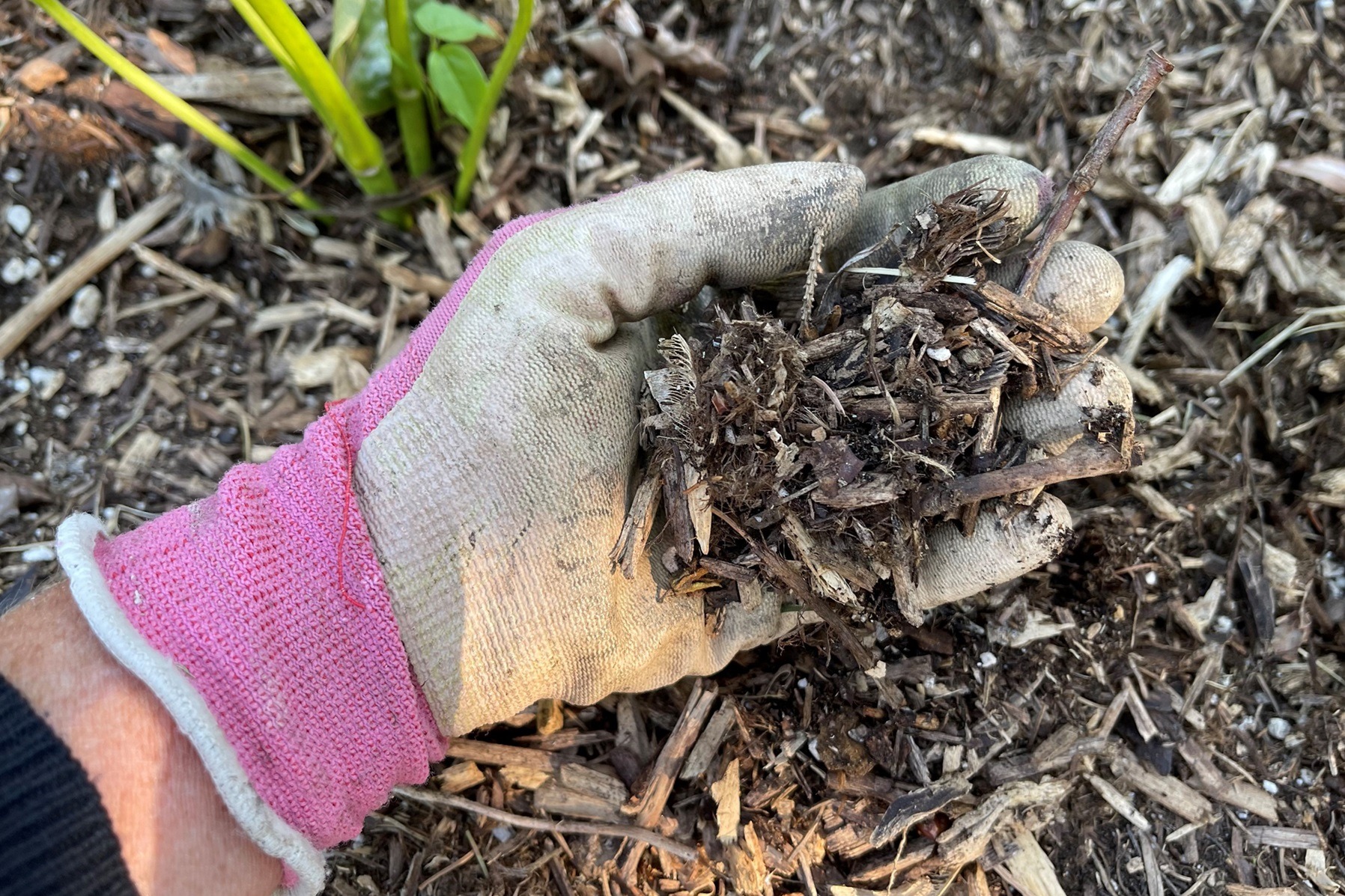
With all the choices of mulch out there, which mulches are best for planters and hanging baskets?
Here’s what I do:
When it comes to my flowers, I use an uncomplicated wood & bark mixture.
For containers used for cultivating food, it is advisable to opt for organic wood and bark mixtures.
Related: To dig really deep into mulch, check out What is Mulch? Making Garden Magic with Mulch
Give Mulch a Try!
I call mulch my great garden stress reducer and a gardener’s best friend. To keep your planters and hanging baskets happy and healthy, use mulch!
For in-ground and raised bed gardens that are more permanent than planters, mulch even builds up soil structure, and contributes essential microbes that augment nutrient content.
Give mulch a try all over your garden, and I promise you’ll fall in love!
©Sharon Wallish Murphy ©Gardening with Sharon



